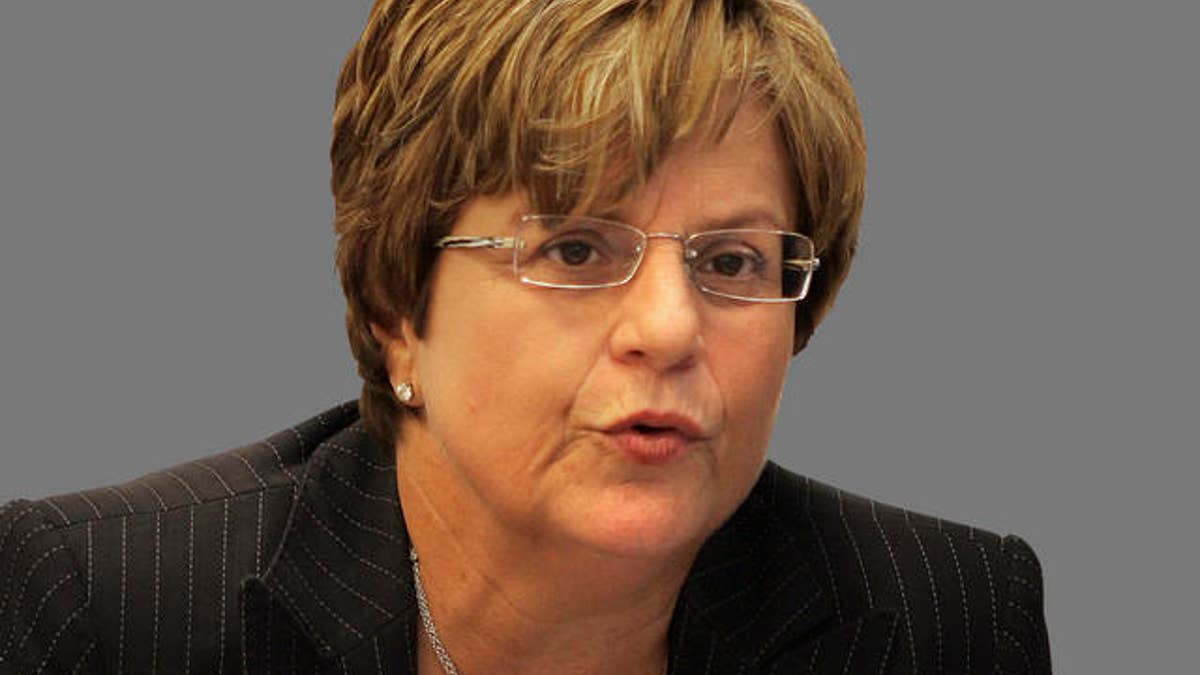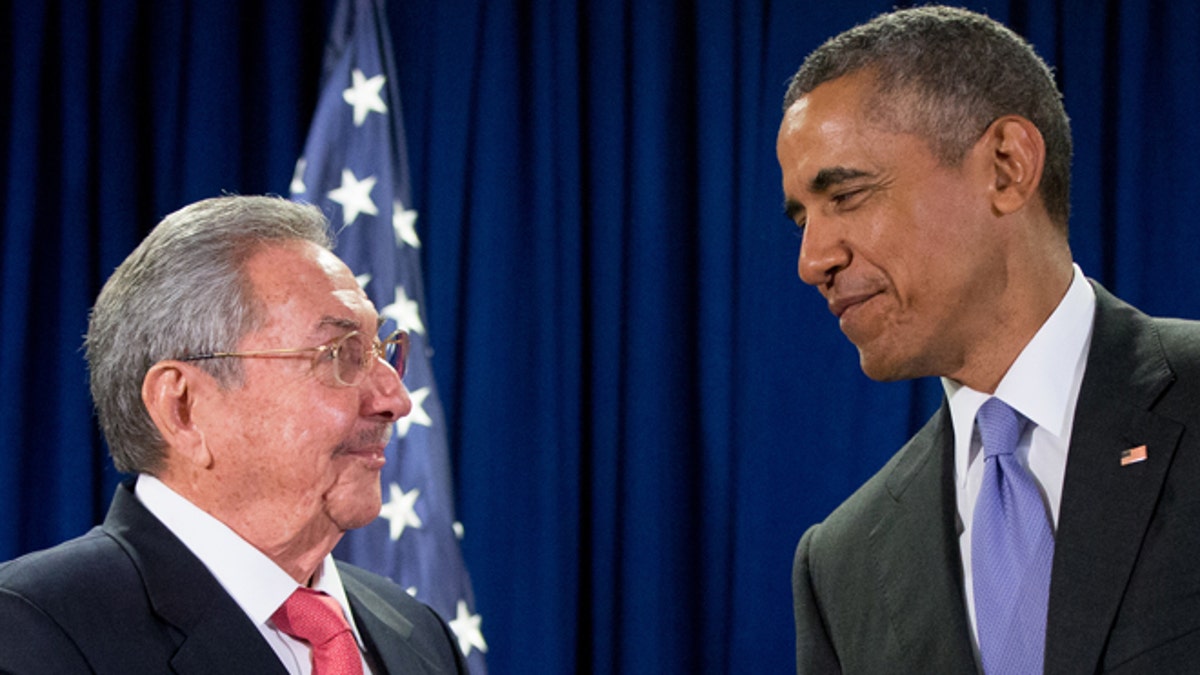
Cuban soldiers carry rocket propelled grenade launchers during a military parade in Havana's Revolution Square in 2011 file photo. (Reuters)
A Florida congresswoman has joined five former U.S. diplomats in publicly urging President-elect Donald Trump to rescind President Obama’s recent directive that U.S. intelligence agencies share information with Cuba’s government.
Opponents, meantime, are defending the October 2016 directive.
The provisions on intelligence sharing were part of a 12-page directive Obama issued in October on trade and travel to Cuba. It instructs the U.S. director of national intelligence, the Department of Justice and Department of Homeland Security to cooperate and share information with counterparts in Cuba on drug trafficking, immigration and counterterrorism.
Last week, Rep. Ileana Ros-Lehtinen, R-Fla., sent a letter to Trump asking him to rescind the intelligence-sharing directives.
Ros-Lehtinen, who sits on the House Foreign Relations Committee, told FoxNews.com that such action was urgent.
"Any intelligence sharing with the Castro regime should cease as soon as the new administration takes power,” she said. “Sharing information with an avowed enemy of U.S. harms our national security interests because the Cuban regime has an advanced espionage apparatus that sells our intelligence to our adversaries across the world.”
The Cuban “dictatorship cannot be trusted with any kind of information,” she said, “and instead has developed strong ties with countries like Russia, China, North Korea and Iran who want to use Cuba as a launching pad for their spying capabilities against our nation.”
Ros-Lehtinen’s letter follows a Dec. 22 letter to Trump from five former U.S. diplomats – Elliott Abrams, Otto Reich, James Cason, Everett Briggs and Jose Sorzano – that said the Cuban regime, which the U.S. long had included on a list of countries that sponsor terrorism, cannot be trusted and intelligence should not be shared with Havana.
“It’s an outrage that the U.S. is sharing intelligence information with a military dictatorship which is a one-party state, controlled by the Communist Party, where there is no freedom of the press, and no freedom, period,” said one of the diplomats, Reich, who was former Assistant Secretary of State for Western Hemisphere affairs, and U.S. ambassador to Venezuela from 1986 to 1989.
“It’s one thing to cooperate with the government of Josef Stalin in World War II when we had to defeat Adolf Hitler,” Reich said. “But we don’t gain anything from sharing the government of Raul Castro.”

Rep. Ileana Ros-Lehtinen, R-Fla. (AP)
Reich said it is unfathomable of the Obama administration to overlook concerns about Cuba and its trustworthiness in light of spies that it has planted in the United States over the years – and who were expelled by the U.S. government – while it vigorously calls attention to alleged efforts by Russia and its president Vladimir Putin to undermine the electoral system here and engage in practices that could compromise U.S. national security.
Reich said it was poor judgment for the administration to allow Cuban national security officials to visit sensitive U.S. government sites last year such as the Pentagon’s counter-drug center in Key West as well as a Navy base there. Cuba had once deemed those sites surveillance targets, according to The Miami Herald.
“The Cuba policy by this administration,” Reich said, “is a clear example of why the Obama administration does not have a single foreign policy success after eight years.”

President Barack Obama talks with Cuban President Raul Castro before a bilateral meeting, Tuesday, Sept. 29, 2015, at the United Nations headquarters. (AP Photo/Andrew Harnik) (AP)
Meanwhile, supporters of Obama’s directive say it is a practical step that merely extends an existing policy on ways to fight terrorism and drug trafficking.
William M. LeoGrande, a professor of government at American University and co-author of “Back Channel to Cuba: The Hidden History of Negotiations between Washington and Havana,” told FoxNews.com that U.S.-Cuba intelligence sharing is not new and has existed for decades in areas such as immigration and fighting drug trafficking.
“For many years, it was a relatively low level of cooperation, on a case-by-case basis,” LeoGrande said. “If the U.S. Coast Guard spotted a trafficker with a plane or boat, going into Cuban airspace or waters, they’d contact the Cuban Coast Guard and cooperate with them in interdicting, and vice versa.”
Critics of expanded cooperation between the two countries, LeoGrande said, have a broader agenda of dismantling the renewed diplomatic ties.
“They’re overblowing it because they’re opposed to every aspect of normalizing relations,” he said. “There’s really no downside to this [sharing]. One has to trust the intelligence community to decide what things are too sensitive to share, and what things are not.”












































